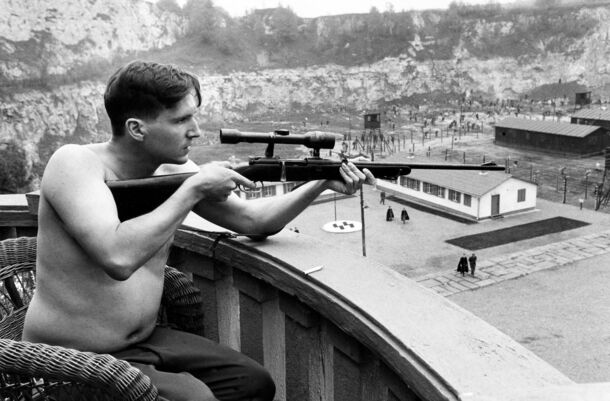Steven Spielberg Picks This $322M War Movie With 12 Oscar Nods as His Best Work Ever

And we completely agree.
Throughout his long career, Steven Spielberg, who has had a colossal influence on modern cinema, has proven that he can master any genre.
He can make a thriller about a killer shark, an adventure blockbuster about an archaeologist-adventurer, an alien fantasy about friendship, and a heartbreaking biographical drama with equal success.
Spielberg's main secret is that he brings personal experience to each of his films, so that the stories he tells always tug at the heartstrings.
Schindler's List is Spielberg's Most Important Film
The 1993 historical drama Schindler's List is one of the most important works in Steven Spielberg's extensive filmography. In the director's films, the real monsters are usually not fantastical creatures, but ordinary people.
.jpg)
The movie tells the story of one of the greatest catastrophes of the 20th century, which also affected the Spielberg family. During the Holocaust, Steven's father lost sixteen to twenty relatives.
And the director himself, from early childhood, heard stories about genocide and even saw tattoos with numbers on the hands of people who survived the concentration camps.
The Director Himself Thinks It’s the Best Movie He's Ever Made

Spielberg is most proud of this particular work:
"It’s the best movie I’ve ever made. I am not going to say it’s the best movie I ever will make. But currently, it’s the work I’m proudest of."
In this black-and-white drama, Spielberg tells the story of a real-life German businessman and Nazi Party member who saved more than a thousand Jews during World War II.
Schindler's List Was a Resounding Success
The story of one man's heroism is mixed with a heartbreaking recreation of the realities of the 1940s: horrific scenes of prisoners being shot with rifles serve as a reminder of the monstrous proportions that hatred can reach.
The historical drama was nominated for Oscars in twelve categories and won in seven, including Best Director and Best Picture, and grossed more than $300 million, but the director did not receive a penny of that money.
Spielberg used all the money to establish the Shoah Foundation, which collects the stories of Holocaust survivors.
Spielberg admitted that he had been preparing for the movie for more than ten years, mostly mentally. In moments of weakness, the director even tried to transfer the rights to adapt the original book by Thomas Keneally to Sydney Pollack, Martin Scorsese and Roman Polanski, but they all rejected the offer for various reasons.
Source: The Hollywood Reporter
